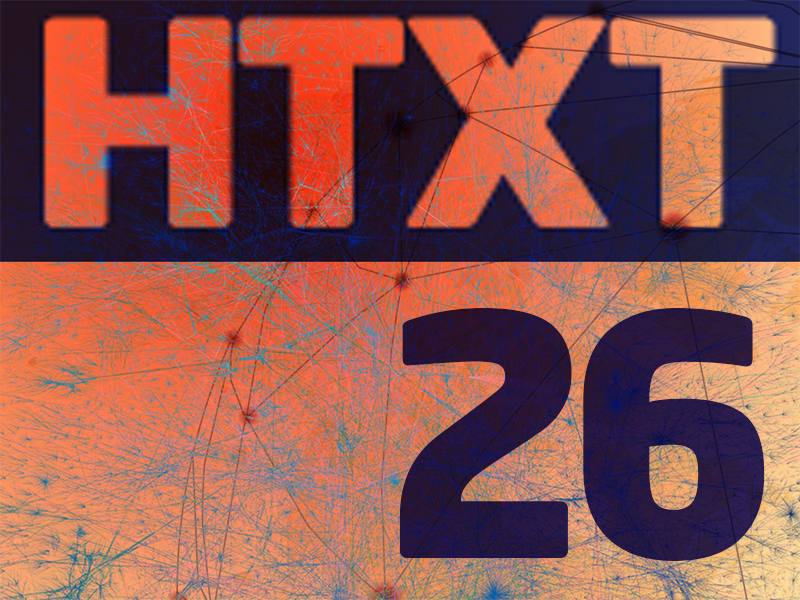Fusió o plagi? La importància de l’originalitat i el dret de transformació de l’obra en la producció informativa mitjançant IA
Article Sidebar

Main Article Content
La irrupció dels sistemes d’intel·ligència artificial aplicats a la producció de notícies planteja una sèrie de qüestions legals que examinem en aquest article breu. Els conceptes centrals són, al nostre parer, el d’originalitat i el de creativitat, doncs ambdós són requisits legals per atribuir autoria a una peça i engegar els mecanismes de protecció jurídica que li corresponen, sigui aquesta simple o en col·laboració, i fins i tot composta. El tipus d’obra que planteja més interrogants és l’obra derivada, obtinguda a partir de la transformació d’una obra o vàries obres preexistents, els drets de paternitat dels autors i d’explotació econòmica de dret-havent s’han de respectar en tot moment. Les pràctiques dels sistemes d’aprenentatge basats en intel·ligència artificial, que reconeixen explícitament que es basen en una gran varietat d’obres protegides pel dret d’autor, creen nombrosos interrogants, doncs no sembla que es puguin acollir a l’excepció del fair use, doncs és, únicament aplicable a obres que han estat produïdes a les jurisdiccions de la tradició jurídica de Common law, però no a la resta de països amb un sistema de protecció de la propietat intel·lectual dels autors.
Article Details

Aquesta obra està sota una llicència internacional Creative Commons Reconeixement-NoComercial-SenseObraDerivada 4.0.
(c) Javier Díaz Noci, 2023
Drets d'autor

Aquesta obra està subjecta a una llicència de Creative Commons Reconeixement-NoComercial-SenseObraDerivada 4.0 Internacional (CC BY-NC-ND 4.0)
Javier Díaz Noci, Universitat Pompeu Fabra
Javier Díaz-Noci. He is full professor of Communication. Main researcher of the Newsnet project (News, Networks and Users in the Hybrid Media System. Transformation of the Media Industry and the News in the Post-Industrial Era, 2019-2022). Member of the DigiDoc research group and its coordinator (2020-2022). He studied Journalism at the University of the Basque Country (1982-1987), where he defensed his PhD dissertation in History. He studied Law at the same University (1992-1996), and got also a Diploma in Advance Legal Studies (1996-1998), equal to a Master in Law. He holds a PhD in Law as well (UPF, 2016). After teaching as a lecturer and assistant professor at my alma mater, he moved to Barcelona in 2008, to the Pompeu Fabra University. He was visiting researcher at the universities of Reno, Nevada (USA, 1997), Oxford (Basque Visiting Scholar, 1998-1999), Federal University of Bahia (Brazil, 2005 and 2008) and the University of East Anglia (United Kingdom, 2021). His main research interests are: online journalism and online news, history of journalism (specially Basque-language press and Spanish-language networks on Early Modern history), and copyright and news reporting. He has added a fourth one: information equity and fighting against the digital news divide. Author of more than 260 publications in those areas. As a journalist, he worked in several newspapers and radio stations (1985-1992). Lately, he has collaborated with the Basque public broadcasting service (Euskadi Irratia).
Agostinelli, A., Denk, T.I., Borsos, Z., Engel, J., Verzetti, M., Caillon, A., Huang, Q., Jansen, A., Roberts, A., Tagliasacchi, M., Sharifi, M., Zeghidour, N., & Frank, C. (2022). MusicLM: Generating Music From Text. arXiV. https://arxiv.org/abs/2301.11325
Bridy, A. (2012). Coding Creativity: Copyright and the Artificially Intelligent Author. Stanford Technology Law Review, 5, 1-28.
Gervais, D. J. (2002). Feist goes global: A comparative analysis of the notion of originality in copyright law. Journal of the Copyright Society of the U.S.A. 49, 949-981. https://ssrn.com/abstract=733603
Gervais, D. J. (2019). The Machine as Author. Iowa Law Review, 105, 2053-2106. https://ssrn.com/abstract=3359524
Gervais, D. J. (2020a). The human case. In R. Abbott (Ed.), Research Handbook on Intellectual Property and Artificial Intelligence (pp. 22-39), Elgar. https://doi.org/10.4337/9781800881907.00007
Ginsburg, J. C. and Budjardio, L. A. (2019). Authors and machines. Berkeley Technology Law Journal, 34, 343-456. https://doi.org/10.15779/Z38SF2MC24
Hugenholtz, P. B. and Quintais, J. P. (2021). Copyright and Artificial Creation: Does EU Copyright Law Protect AI-Assisted Output? IIC - International Review of Intellectual Property and Competition Law, 52, 1190–1216. https://doi.org/10.1007/s40319-021-01115-0
Kafka, P. (2023, February 2). The AI boom is here, and so are the lawsuits. Vox.com. https://www.vox.com/recode/23580554/generative-ai-chatgpt-openai-stable-diffusion-legal-battles-napster-copyright-peter-kafka-column
Lindbergh, V. (2023). Zarya of the Dawn (Registration # VAu001480196). United States Copyright Office. https://www.copyright.gov/docs/zarya-of-the-dawn.pdf
Mitchum, R. (2023, February 17). UChicago scientists develop new tool to protect artists from AI mimicry. “Glaze” program makes miniscule changes to confound AI art generators. UChicago News. https://news.uchicago.edu/story/uchicago-scientists-develop-new-tool-protect-artists-ai-mimicry
Samuelson, P. (1986). Allocating ownership rights in computer-generated works. University of Pittsburgh Law Review, 47, 1185-1228.
Trapova, A. (2023). Copyright for AI-generated Works: a Task for the Internal Market? European Law Review, 48. https://ssrn.com/abstract=4418936
Trapova, A., & Mezei, P. (2021). Robojournalism – A Copyright Study on the Use of Artificial Intelligence in the European News Industry. GRUR International, 71(7), 589-602. https://doi.org/10.1093/grurint/ikac038
Yan, L. (2020, January 9). Court rules AI-written article has copyright. China Daily Global. http://www.ecns.cn/news/2020-01-09/detail-ifzsqcrm6562963.shtml
Articles més llegits del mateix autor/a
- Javier Díaz Noci, Intellectual property and transmedia informative products: A comparative, transnational legal analysis , Hipertext.net: Núm. 20 (2020)
- Lluís Codina, Rafael Pedraza, Javier Díaz Noci, Ruth Rodríguez-Martínez, Mario Pérez-Montoro, Víctor Cavaller-Reyes, Sistema Articulado de Análisis de Cibermedios (SAAC): Una propuesta sobre el qué y el cómo para estudiar medios de comunicación digitales , Hipertext.net: Núm. 12 (2014)